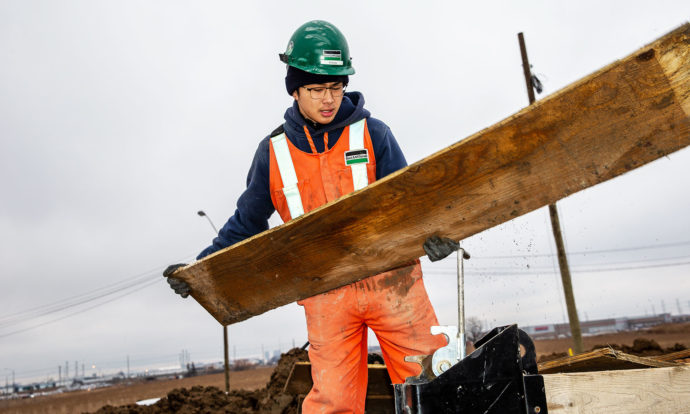The construction industry is undergoing a significant shift. In the past, industry practices like procurement solely focused on the economic bottom line. Now, standard construction processes and procedures closely consider the social and environmental impact of the project. Social procurement is a model that is gaining traction in the construction industry with benefits for all parties involved.
What is Social Procurement?
Social procurement, or sustainable procurement, is an approach that extends beyond the conventional focus on cost and quality in the procurement process. It goes deeper by considering the larger social and environmental objectives of a construction project and aims to create a positive impact on the community, the environment, and the economy.
Director of Corporate Procurement, Paula Irwin, sums it up best:
“To me, procurement goes deeper. Are we supporting the local suppliers and businesses? For bigger projects as well, are we ensuring that we equal out the wealth? Are we utilizing every region? Especially locations and businesses that are often overlooked or isolated, we want to make sure there’s a fair distribution.”
Social Procurement in Construction
At its core, Social Procurement ensures that construction projects are not just about building structures but also fostering stronger communities, promoting environmental sustainability, and generating economic opportunities for all. Social procurement can take different forms:
- Local Sourcing: Procuring materials and services from local suppliers. This reduces transportation emissions, supports the local economy, and promotes community development.
- Diversity and Inclusion: Working with underrepresented groups in the supply chain to ensure that a project benefits a wide range of individuals. Welcoming and encouraging equal opportunity for all underrepresented groups. This includes, but is not limited to: women, indigenous peoples, persons with disabilities, and members of visible minorities.
- Inclusive Hiring: Prioritizing the hiring of workers from underrepresented communities. Construction companies may collaborate with local training programs or community groups to identify and train prospective candidates.
- Environmental Sustainability: Prioritizing the use of eco-friendly materials, energy-efficient designs, and waste reduction practices to reduce the project’s environmental impact.
Benefits of Social Procurement:
Procurement should go beyond the basics. As the construction industry undergoes a paradigm shift, social and economic impacts are considered alongside traditional procurement criteria. The benefits of social procurement are plenty:
- Community Development: Advances economic growth in local communities by developing job opportunities and supporting small businesses.
- Environmental Impact: Encourages environmental sustainability to contribute to a greener future. This includes energy-efficient building designs, responsible waste management, and the use of eco-friendly materials.
- Continued Economic Gains: After initial investments, the long-term benefits include reduced operating costs and increased resilience to market fluctuations.
- Social Inclusivity: Promotes inclusivity by creating opportunities for marginalized communities. It helps create a more diverse and equitable workforce.
The construction industry can continue to play a vital role in addressing societal challenges and shaping a more inclusive, sustainable, and prosperous future for all.
“Social procurement is not saying I have a need and going to the biggest one always, but it means spreading the wealth accordingly and making sure we’re being good to smaller, underrepresented groups,” says Paula Irwin.
Implementing social procurement is not only a responsible choice but a smart one that benefits everyone involved, from construction companies to local communities and the environment.
Learn more about Black & McDonald’s focus on social procurement by reaching out to our team at [email protected]




